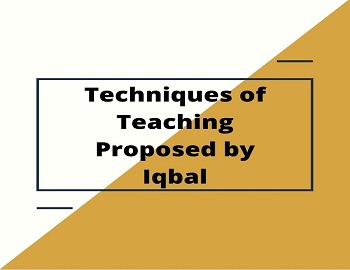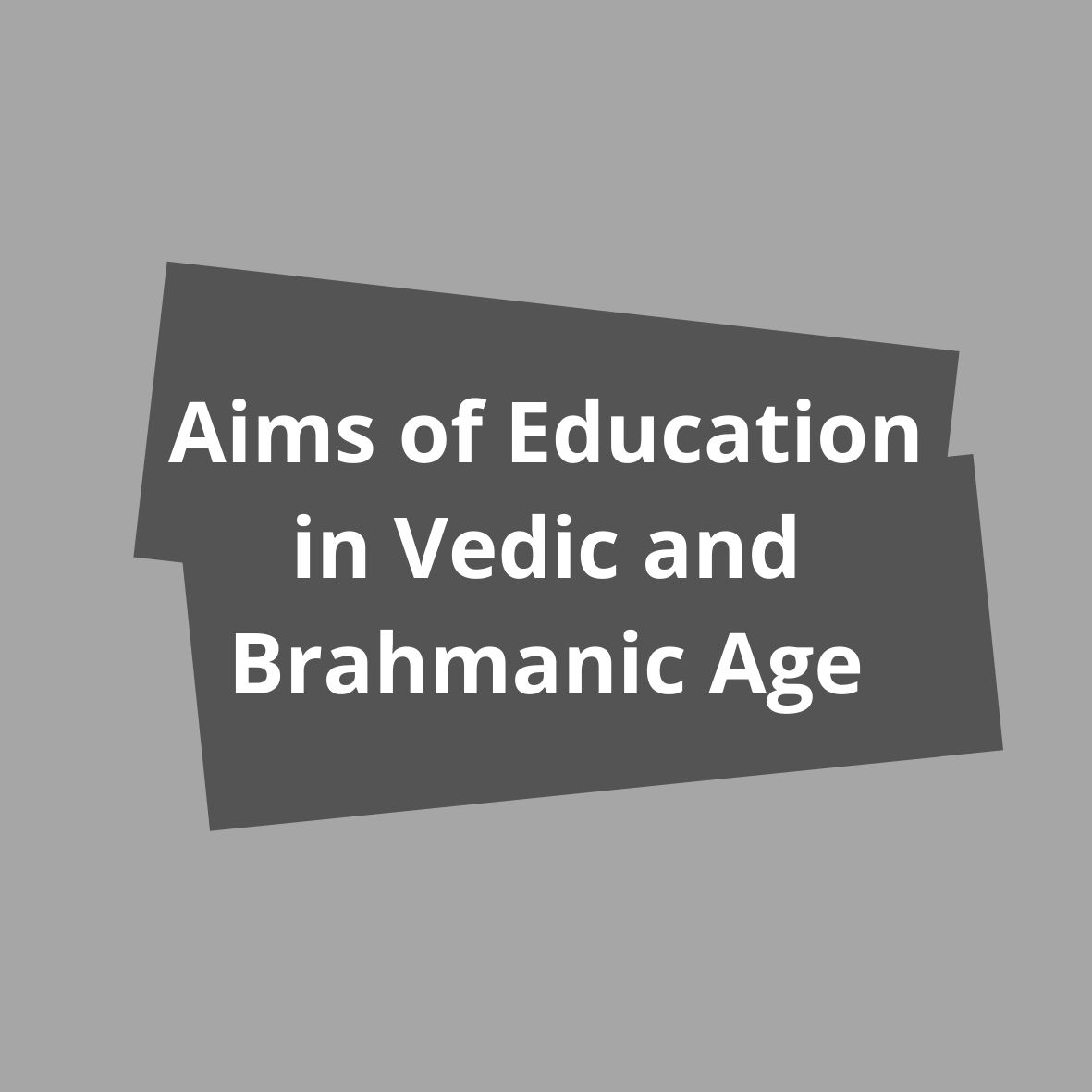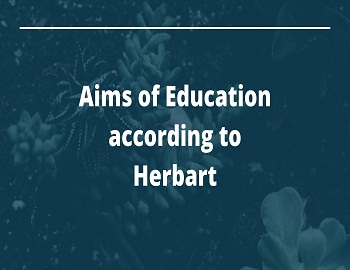Techniques of Teaching Proposed by Iqbal:
Dr Iqbal strongly advocated freedom in the educative process. He emphasised those methods which involve learning by doing, learning by experience, problem-solving and purposeful self-activity. Purposeful activity is carried on in social settings and project methods. Dr Iqbal advocated the following principles and techniques of teaching
(1) Principle of Freedom- Dr Iqbal did not believe in a dogmatic approach in teaching. He wanted to give complete freedom to the child. Freedom was the watchword of Dr Iqbal in the educative or learning process. He believed that individuality can grow best in an atmosphere of freedom where it can carry on experiments with its environment. Deprived of freedom man becomes a slave and as one incapable of original creative activity. Dr Iqbal remarked,
| “Imprisoned life is reduced to a small rivulet Free, it is like the boundless ocean!” |
The freedom of choice is the distinctive gift of man alone. Man must be able to choose his methods and materials freely and learn through direct first-hand experience. The freedom to choose is a natural corollary of his gift of intelligence as it covers both his intellectual and moral life.
(a) Intellectual Freedom- Intellectual Freedom confers on him the citizenship of the kingdom of the mind. With it, he can make unlimited advances in knowledge.
(b) Moral Freedom- Moral freedom is a freedom of choice between good and evil. Goodness is not a matter of compulsion, it is the self’s surrender to the moral idea and arises out of willing cooperation of free egos.
Freedom is thus a condition of goodness. It is through the wise exercise of dual freedom that individuality develops into a personality which is the great and exacting trust that man has to carry. The power to act freely must be retained as a constant and undiminished factor in the life of the ego.
(2) Principle of Experience- Man learns through first-hand experience. Wrongdoing or making errors can become a part of man’s growing experience if it is coupled with an intelligent desire to learn. Someone has rightly observed that a hundred mistakes can provide a good education for an individual, provided he learns from each of them.
In the words of Dr Iqbal, “The life of a finite ego in an obstructing environment depends on the perpetual expansion of knowledge based on actual experience. And the experience of a finite ego, to whom several possibilities are open, expands only by trial and error. Therefore, an error that may be described as a kind of intellectual evil is an indispensable factor in the building up of experience.
(3) Principle of Activity- Dr Iqbal emphasized learning through activity. A child is interested in the activity. His activities should be utilized for educational purposes. “The call to act” was his slogan.
(4) Principle of Direct Contact- Children show interest in touching and observing things. They want to possess everything they see. The teacher should develop their power of observation and train their senses by bringing them into contact with actual and concrete objects.
(5) Principle of Variety- Child wants variety in activity. He cannot attend to a thing for long. Hence the teacher should utilize the principle of variety in the teaching-learning process. He should divide his lesson into “units” in order to sustain and regulate the attention of the children.
(6) Utilization of Memorization- Children have a wonderful memory for vocabulary and remembering things. The teacher should always try to encourage them to remember verses and poems.
(7) Utilization of Imagination- Children are gifted with the power of imagination and thinking. The teacher should make full advantage of this trait of children. He calls to tell them stories and fables.
(8) Developing Power of Judgement and Discrimination- The teacher should develop the power of judgement and discrimination of the pupils. He should present different objects and develop their power of judgement by giving them a comparative view of the objects.
(9) Developing Power of Reasoning- Children should be given exercises for developing their power of reasoning. Comparative situations should be provided for sharpening their power of discrimination.
(10) Developing Morality- With a view to teach morality, the teacher should create situations of morality from the very beginning. The pupils should be taught to develop good moral virtues.
(11) Providing Good Model- Children imitate their teacher and parents. Hence teachers should always provide a good model so that the pupils may imitate good things. An example is always better than precept.
(12) Utilization of Sympathy- Children want love and sympathy by nature. The teacher should utilize this need in inculcating moral education among the children.
(13) Developing Colour Sense- Children are attracted towards bright colours. Hence, the teacher should develop the colour sense of the pupils.









Comments (No)